In January 2017 we put out a call via email for news and many of you responded. Did you not receive the email? Do you have news about your activities and accomplishments not included below? Please contact us at casbs-info@stanford.edu so we can share interesting news about you* with the CASBS community in the next newsletter.

Carolyn Becker (2011-12) has been named a Fellow of the Association for Behavioral and Cognitive Therapies.
Victoria Bernal (2015-16) published an article completed during her CASBS fellowship, “Diaspora and the Afterlife of Violence: Eritrean National Narratives and What Goes Without Saying,” in American Anthropologist.
Henry Bienen (1976-77), Northwestern University’s president for 15 years, now serves as president of the Poetry Foundation. He also continues to serve on many for-profit and nonprofit boards.
The latest book by Paul Blanc (2013-14) is Fake Silk: The Lethal History of Viscose Rayon (Yale Univ. Press, 2016). Partially completed while Blanc was a CASBS fellow, the book resides in the Center’s Ralph W. Tyler Collection.
Joan Bresnan (1982-83) received the 2016 Life Time Achievement Award from the Association for Computational Linguistics for her “sustained and impactful contributions to the field of Computational Linguistics/Natural Language Processing.”
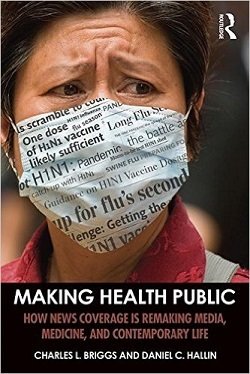
Charles Briggs (2001-02) and Daniel Hallin (2011-12) are co-authors of Making Health Public: How News Coverage is Remaking Media, Medicine, and Contemporary Life (Routledge, 2017). Partially completed while both were CASBS fellows, the book resides in the Center’s Ralph W. Tyler Collection.
Clayborne Carson (1993-94) delivered the keynote address at the annual Martin Luther King Jr. Birthday Commemoration Dinner on January 20. It was hosted by the Charles E. Brown African American Cultural Center at Indiana State University.
In 2016, Justine Cassell (2008-09) was named a fellow of the Royal Society of Edinburgh for her contributions to computer science and human-computer interaction. Press release here. In 2016 Cassell also was named a fellow of the Association for Computing Machinery in recognition of her contributions to human-computer interaction and advocacy for empowerment and voice through technology. Press release here.
Meg Conkey (2004-05) was selected as the 2016 winner of the Lifetime Achievement Award from the Society for American Archaeology. This year she will receive the Huxley Medal from the Royal Anthropological Society (U.K.) and deliver a public lecture at the British Museum.
The latest book by King-Kok Cheung (1995-96) is Chinese American Literature without Borders: Gender, Genre, and Form (Palgrave Macmillan, 2016).
Mary Dudziak (2014-15) was elected president of The Society for Historians of American Foreign Relations.
The new book by Amitai Etzioni (1965-66) is Avoiding War with China: Two Nations, One World (Univ. of Virginia Press, 2017).
The concept of “Institutional Betrayal,” conceived and developed by Jennifer Freyd (1989-90), is the subject of The Pacific Sociological Association’s annual conference, to be held in June.
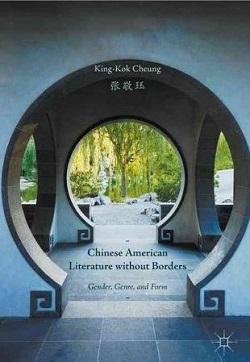
A new report by Martin Carnoy (1994-95) finds that voucher programs do not significantly improve test scores and student achievement; rather, they distract from policies and programs with proven impact.
The Stanford Center on Longevity, directed by Laura Carstensen (2009-2010), recently unveiled The Sightlines Project, designed to further research and encourage officials, entrepreneurs, and the public to think about ways of redesigning the human life.
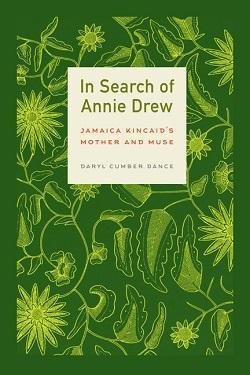
In 2016, Eve Clark (1979-80) saw the third edition of her book First Language Acquisition published (Cambridge Univ. Press). Her new book, just published, is Language in Children (Routledge, 2017).
The latest book by Daryl Cumber Dance (1998-99) is In Search of Annie Drew, Jamaica Kincaid’s Mother and Muse (Univ. of Virginia Press, 2016).
Joshua Foa Dienstag (2014-15) reflects “On Political Theory, the Humanities, and the Social Sciences” in an essay published in December 2016 in Perspectives on Politics.
The Atlantic interviewed CASBS consulting scholar Carol Dweck (2014-15) regarding the need for a nuanced understanding of the “growth mindset” research program.
Arlene Geronimus (2014-15) is co-author of a report finding that immigration fears among Latinos can impact baby size at birth.
In late March, Martin Gilens (2015-16) will give the Storrs Lecture on “America’s Ailing Democracy” at Yale University Law School. His upcoming book (based on work he conducted at CASBS) with Benjamin Page (1998-99, 2007-08) is Democracy in America? What Has Gone Wrong and What We Can Do About It (Univ. of Chicago Press, forthcoming).
The latest book by James T. Hamilton (2007-08) is Democracy’s Detectives: The Economics of Investigative Journalism (Harvard Univ. Press, 2016). The book has received coverage in The Nation and The Atlantic, among other media outlets.
In February, Victor Davis Hanson (1992-93) published an opinion piece in the Los Angeles Times arguing that the Oroville Dam disaster is a metaphor for the condition for California as a whole, including its civic decline.

A New York Times piece features a virtual reality project called “The Enemy,” co-developed by Fox Harrell (2014-15), which integrates journalism and art “in a socially oriented 21st-century performance piece poised at technology’s cutting edge.”
The new book by Bonnie Honig (1993-94), Public Things: Democracy in Disrepair (Oxford Univ. Press, 2017), was just published in March. An article about the importance of public things to democratic life in the age of Trump recently appeared in the Boston Review.
In his 90th year Adrian Horridge (1959-60) is still producing, most recently publishing “Parallel Inputs to Memory in Bee Colour Vision” in Acta Biologica Hungarica in 2016.
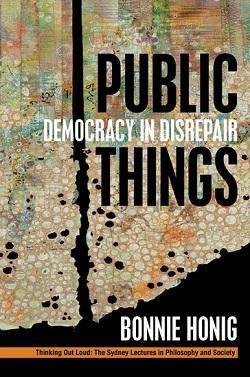
Philip Howard (2008-09) published a commentary in Reuters explaining why Facebook and Twitter’s real sin goes beyond spreading fake news. The New York Times article covered research by Howard and collaborators, finding that an automated army of pro-Donald J. Trump chatbots overwhelmed similar programs supporting Hillary Clinton five to one in the days leading up to the 2016 U.S. presidential election.
How Games Make Us Move: Emotion by Design (MIT Press, 2016) by Katherine Isbister (2014-15) was selected as an ‘Outstanding Academic Title’ by Choice, a division of the American Library Association. The book resides in the Center’s Ralph W. Tyler Collection.
How Physics Makes Us Free (Oxford Univ. Press, 2016) by Jenann Ismael (2014-15) was picked as science book of the year by Forbes. The book also resides in the Center’s Ralph W. Tyler Collection.
In retirement, Robert Jensen (1971-72) maintains three blogs, including one devoted to accounting fraud, here.
The first volume of the collected works of Richard Jessor (1995-96), The Origins and Development of Problem Behavior Theory (Springer), was published in 2016; the second volume, Problem Behavior Theory and Adolescent Health (Springer), will be published in March 2017. A third volume, Problem Behavior Theory and the Social Context, will be published later in 2017. Jessor was awarded the degree of Doctor of Science, honoris causa, by the Regents of the University of Colorado in 2015.
Philip Kendall (1980-81) is co-editor of the new book Anxiety in Children and Adolescents with Autism Spectrum Disorder (Elsevier, 2017).
Co-authors Michael Kirst (1980-81) and Richard Scott (1989-90) will release their book Higher Education and Silicon Valley: Connected but Conflicted (Johns Hopkins Univ. Press, forthcoming) later in 2017.
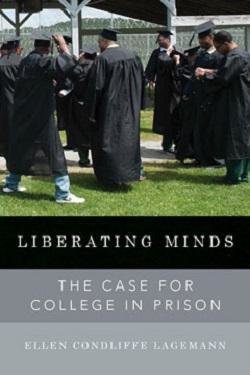
A study by Rachel Kleinfeld (2015-16), “Reducing All Violent Deaths, Everywhere: Why the Data Must Improve,” was published by the Carnegie Endowment for International Peace in February.
During the 2016-17 year, David Konstan (2004-05) is a fellow at the Swedish Collegium for Advanced Study. He will be teaching at the Fu Jen Catholic University (Beijing) summer program in Classical and Medieval Studies during summer 2017.
Jon Krosnick (1996-97, 2013-14) delivered the 2016 Tanner Lecture on Human Values at Princeton University on the forces that encourages suboptimal practices in science and mechanisms by which reform mechanisms mght be effective. Watch a video of the lecture here. The findings emerged from an ongoing CASBS Group on Best Practices in Science launched in 2013-14.
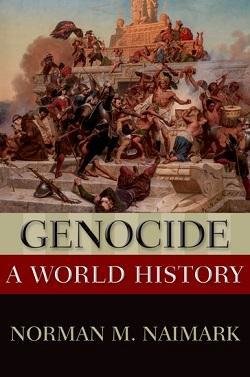
Alan Krueger (1999-2000) has been named the 2017 Daniel Patrick Moynihan Prize recipient from the American Academy of Political and Social Science. Krueger will formally accept the prize on Capitol Hill on May 18, 2017, where he will give a lecture that focuses on the economics of alternative work arrangements and what politicians and public policy-makers can do to support that significant and growing segment of the American workforce.
Martin Krygier (2005-06) is winner of the Dennis Leslie Mahoney Prize in Legal Theory, awarded just once every five years to an author who advances a sociological and justice-oriented approach to jurisprudence. The projects that were cited as grounds for his prize – including his 2012 book Philip Selznick: Ideals in the World (Stanford Univ. Press) were developed and refined during his CASBS fellowship year.
The latest book by Ellen Condliffe Lagemann (1991-92) is Liberating Minds: The Case for College in Prison (The New Press, 2017).
In February, David Laitin (1999-2000) co-wrote an analysis in the Washington Post on foreign policy ‘nightmare scenarios’ that the White House could face.
Elizabeth Loftus (1978-79) won the 2016 John Maddox Prize, a joint initiative of Nature and the Kohn Foundation, for “courage in promoting science and evidence on a matter of public interest, despite facing difficulty and hostility in doing so.” Coverage by The Guardian here.
Hazel Markus (1980-81, 1995-96, 2008-09) is winner of the 2017 William James Fellow Award from the Association for Psychological Science, citing her foundation work in social psychology involving theoretical and empirical innovations in the study of the self. Stanford University coverage here.
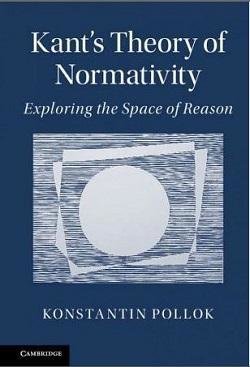
On November 5, 2016, Rose McDermott (2008-09, 2015-16) delivered a TEDx talk on “The Genetics of Politics.”
During the spring 2017 semester Eduardo Mercado III (2009-10) is the Martha Daniel Newell Visiting Scholar at Georgia College.
The latest book by Norman Naimark (1998-99, 2004-05, 2010-11) is Genocide: A World History (Oxford Univ. Press, 2017). Partially completed while Naimark was a CASBS fellow, the book resides in the Center’s Ralph W. Tyler Collection. Stanford Global Studies interviewed Naimark here.
Emiko Ohnuki-Tierney (1988-89) published the book Flowers that Kill: Communicative Opacity in Political Spaces (Stanford Univ. Press) in 2015. She was a fellow at the Institut d’Études Advançées, Paris, in 2016. She was awarded la médaille du Collège de France on the occasion of delivery of two lectures at Collège de France in 2014.
The latest book by Konstantin Pollok (2009-10, 2012-13) is Kant’s Theory of Normativity: Exploring the Space of Reason (Cambridge Univ. Press, 2017).
The latest work by Gianfranco Poggi (1989-90) is a translation of Heinrich Popitz’s Phenomena of Power: Authority, Domination, and Violence (Columbia Univ. Press, 2017). His most recent authored book is Varieties of Political Experience: Power Phenomena in Modern Society (ECPR Press, 2014).
Co-authored by Charles Ragin (2000-01), Intersectional Inequality: Race, Class, Test Scores, and Poverty (Univ. of Chicago Press) was published in 2016.
Nilan Ram (2013-14) is co-author of Growth Modeling: Structural Equation and Multilevel Modeling Approaches (Guilford Press, 2017). Partially completed while Ram was a CASBS fellow, the book resides in the Center’s Ralph W. Tyler Collection.
Barbara Risman (2015-16) examined the film “Gender Revolution: A Journey with Katie Couric” in an article appearing in Contexts: Understanding People in their Social Worlds, a publication of the American Sociological Association.
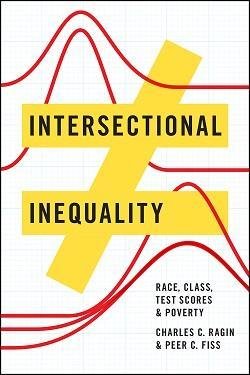
In 2016 and again in 2017, Paul Rock (1996-97) is a visiting professor at the University of Macau. In 2009, the U.K. Prime Minister appointed Rock and two other scholars to write the official history of criminal justice. Rock completed his portion – two volumes, one centered on the liberalizing legislation of the 1960s and the other on the founding of the Crown Court, the judge and jury court of England and Wales, and of the Crown Prosecution Service – in 2016 and they await publication.
Jonathan Rodden (2006-07) insightfully explained why Democrats lose in rural post-industrial America in a Washington Post analysis.
Daniel Rodgers (1991-92, 2015-16) explained what happens “When Truth Becomes a Commodity” in an article published in The Chronicle of Higher Education. Post-election, Rodgers’s 2012 book Age of Fracture was named among The Baffler’s “Good Books for Dark Times.”
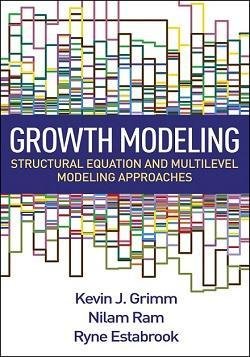
The latest books by Enrique Rodrìguez-Alegrìa (2010-11) are The Archaeology and History of Colonial Mexico: Mixing Epistemologies (Cambridge Univ. Press, 2016), and the co-edited volume The Oxford Handbook of the Aztecs (Oxford Univ. Press, 2016). The former book was partially completed while Rodrìguez-Alegrìa was a CASBS fellow and resides in the Center’s Ralph W. Tyler Collection.
Lawrence Rosen (2009-10, 2013-14) received the J. B. Donne Prize Essay Award from the Royal Anthropological Institute for a study of the cultural context of Islamic quasi-crystal mosaics. He has two forthcoming books: Islam and the Rule of Justice (Univ. of Chicago Press) and The Judgement of Culture: Cultural Assumptions in American Law (Routledge, 2017).
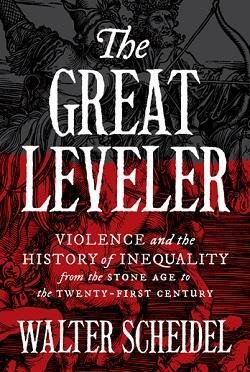
Walter Scheidel (2007-08) has created a lot of buzz with his book The Great Leveler: Violence and the History of Inequality from the Stone Age to the Twenty-First Century (Princeton Univ. Press, 2017). It has been reviewed or discussed in The New York Times, The Chronicle of Higher Education, The Economist, and The Atlantic, among many other media outlets.
In May, the career of Nancy Scheper-Hughes (1987-88) will be celebrated during a two-day conference, “Anthropology on the Front Lines: Honoring the Work of Nancy Scheper-Hughes.” In 2016, Scheper-Hughes was a Visiting Senior Fellow at The Radcliffe Institute for Advanced Study at Harvard University. In 2016, she also was the recipient of a Tikkun Award and delivered a filmed keynote at the DOX Cultural Center, Prague, on “Kidney Hunters – Trafficking with Organ Traffickers.”
In 2015, Michael Schudson (1992-93) published The Rise of the Right to Know: Politics and the Culture of Transparency, 1945-1975 (Harvard Univ. Press). Currently he is co-editing a volume on the past and future as well as strengths and weaknesses of the 1966 Freedom of Information Act, to be published by Columbia Univ. Press.

Norbert Schwarz (2000-01, 2009-10) received the 2016 Distinguished Scientist Award from the Society of Experimental Social Psychology. He also received an Honorary Doctorate of the Faculty of Psychology of the University of Basel, Switzerland, for his groundbreaking research on the use of emotions as a source of information in the formulation of judgments and decisions.
As a follow-up to his 2015 book Generations and Collective Memory (Univ. of Chicago Press), Howard Schuman (1985-86) published “The Conversion of Generational Effects into Collective Memories” in the International Journal of Public Opinion Research.
The writings of Arvind Shah (1960-61) since 1958 are collected in Sociology and History: Dialogues towards Integration (Orient BlackSwan, 2016). Previously, The Writings of A.M. Shah: The Household and Family in India (BlackSwan, 2014) collected all his books and papers on the subject since 1973.
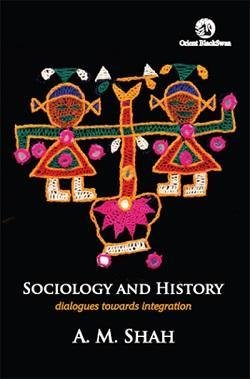
Edward Slingerland (2015-16) recently was named a Distinguished University Scholar by the University of British Columbia. On October 17, 2016, he delivered a TEDx talk on “Trying Not to Try: The Power of Spontaneity.”
The next book by Richard Cándida Smith (1995-96), Improvised Continent: Pan-Americanism and Cultural Exchange (Univ. of Pennsylvania Press), will be published in fall 2017.
Mick Smyer (2015-16) published “Greening Gray: Climate Action for an Aging World” in the Public Policy and Aging Report, a collaboration of Oxford Academic and The Gerontological Society of America. Smyer also was interviewed on the podcast Results May Vary about engaging more older adults in taking impactful action on climate change.
In a December in the Washington Post, Paul Sniderman (1977-78) co-authored an analysis explaining how Democrat’s policies are more popular while Republicans are more ideologically unified
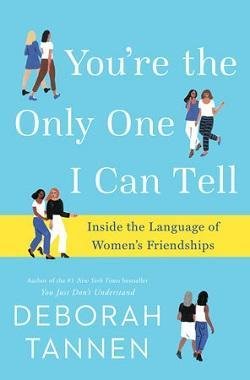
The next book by Deborah Tannen (1992-93, 2012-13), You’re the Only One I Can Tell: Inside the Language of Women’s Friendships (Random House, 2017), will be published in May.
Mark Turner (1994-95, 2001-02) recently won the Anneliese-Maier Research Prize from the Alexander von Humboldt Foundation. Press release here.
In 2016, Simine Vazire (2013-14) founded the Society for the Improvement of Psychological Science, dedicated to improving methods and practices in psychological science.
Diego von Vacano (2009-10) is the new editor of Oxford University Press’s book series Studies in Comparative Political Theory, which seeks to publish book in non-Western political theory and philosophy.
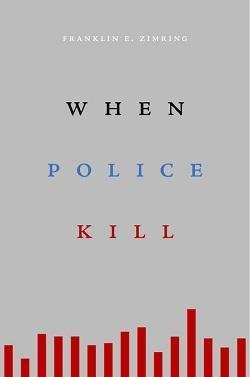
The memoir by Irvin Yalom (1977-78), Becoming Myself: A Psychiatrist’s Memoir (Basic Books, 2017) will be published later this year.
The latest book from Franklin Zimring (1979-80) is When Police Kill (Harvard Univ. Press, 2017).

